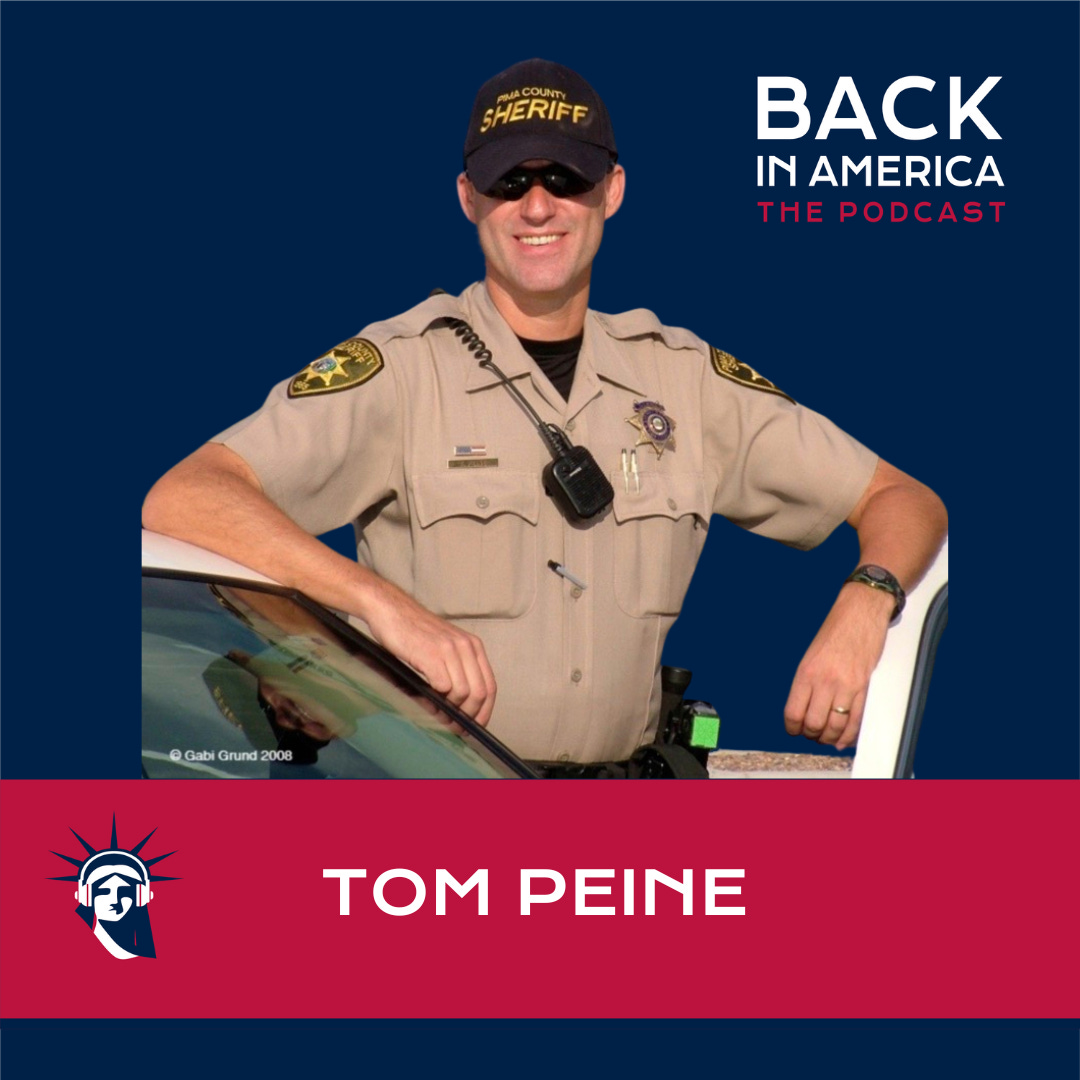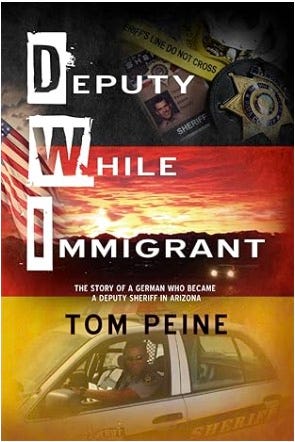When Tom Peine left Germany for the United States in 2001, he couldn’t have foreseen where his journey would take him. Transitioning from finance professional to deputy sheriff in Arizona, Peine’s story offers a unique view of American culture, especially regarding the country’s complex relationship with guns and societal values. As an immigrant in law enforcement, Peine’s observations reflect the adjustments faced by foreigners who come to America with one set of expectations only to encounter a starkly different reality.
Adjusting to American Freedom and Learning From Mistakes
Growing up in Germany, Peine was steeped in a culture of strict rule adherence, deeply shaped by his parents’ experiences in World War II. German society emphasized caution, respect for authority, and a drive to avoid mistakes—an approach that clashed with the American belief in individual freedom and the notion that mistakes are valuable learning opportunities.
“It was difficult to adjust,” Peine reflects during an interview with Stan Berteloot host of the podcast Back in America. “Americans have this idea that if you mess up, it’s just part of the journey. Where I come from, making a mistake means you didn’t know what you were doing.”
This openness to experimentation surprised Peine and took him years to fully embrace. For him, the American mindset—especially in professional and personal growth—is grounded in a belief that failure is simply a step toward future success. In Germany, mistakes are often considered a mark against one’s competency, whereas, in the U.S., they are just part of life.
Confronting the Gun Culture: An Officer’s Reality
Perhaps the most glaring cultural divide Peine encountered was America’s pervasive gun culture. Growing up in a country with strict gun regulations, Peine was no stranger to firearms—he had trained as a sports shooter in his youth and had some military experience. However, his experience in Germany led him to view guns as tools reserved for law enforcement, military personnel, or licensed sportsmen, with significant restrictions around their use and ownership. Upon becoming a deputy sheriff, Peine realized quickly that many Americans view guns as both a right and a necessity for protection, especially in rural areas.
Peine’s work in law enforcement often involved traffic stops where he found firearms in one out of every seven vehicles he checked. “For many Americans, carrying a gun is second nature,” he explains. “It’s rooted in the belief that they need to protect themselves, not only from criminals but potentially from their own government if things go south.”
As an immigrant from a European democracy, Peine found this sentiment striking. “It’s almost a contradiction—Americans trust in their freedom but also harbor this deep-seated belief that they might need to defend it, even against the government itself,” he notes. This perspective is reinforced by data from Pew Research; in 2021, the Centers for Disease Control and Prevention (CDC) reported a record 48,830 gun-related fatalities in the U.S., a figure that includes murders, suicides, and accidental deaths.
The Toll on Law Enforcement and Public Safety
For Peine, adjusting to America’s gun culture was essential to survival in his role as a law enforcement officer. Unlike Germany, where police rarely encounter armed civilians, U.S. officers operate in an environment where almost anyone could be carrying a weapon. This reality alters how law enforcement officers approach even routine interactions, such as traffic stops, given the high likelihood that a firearm could be involved.
Peine describes the constant state of alertness required in his work, particularly in Arizona, where he patrolled rural areas where gun ownership was a cultural norm. “The moment you approach a vehicle, you’re considering the possibility that there’s a gun involved. You have to,” Peine says.
One training exercise he recalls vividly involved simulated encounters with armed civilians. “It’s a game of seconds,” he explains. “Any hesitation or misjudgment can lead to a deadly outcome, and officers are trained to expect the worst. This is a side of America that’s hard for Europeans to grasp unless they’ve lived here and experienced it.”
Despite the training, Peine still found that law enforcement work in America requires a degree of vigilance that few outside the country fully appreciate. “It’s a constant, heightened alertness that doesn’t quite go away even after you leave the shift,” he reflects. “Every stop could be your last if you’re not careful.”
Balancing Patriotism and Protection
Despite the challenges and dangers, Peine speaks warmly about the freedoms and opportunities he’s found in America. From his first step onto American soil, he felt an inexplicable sense of belonging, a sentiment that has grown as he’s built his life and career here. Yet he acknowledges that America’s gun culture remains a complex and, at times, troubling reality that requires a nuanced approach to public safety.
In his years as a deputy sheriff, Peine came to view this paradox as a fundamental part of American identity. While Germany takes a more controlled approach to public safety and gun ownership, America’s cultural DNA includes a strong emphasis on individual rights, which often conflicts with collective safety concerns.
Reflecting on America’s Identity
Peine’s story is about more than cultural adaptation; it’s a window into America’s ongoing negotiation of personal freedom versus public safety. For Peine, navigating these cultural contradictions is part of what makes America so complex—and compelling. He sees the nation as a place where freedom and security constantly intersect, a reality that demands both vigilance and resilience. His journey highlights the ongoing challenge for the country: balancing personal freedoms with collective safety, a struggle that continues to shape what it means to be American.
Peine’s journey is about understanding America from within. His perspective as an immigrant and public servant provides a unique and grounded view of a society that, while complex and sometimes contradictory, offers unparalleled freedom and opportunity.





